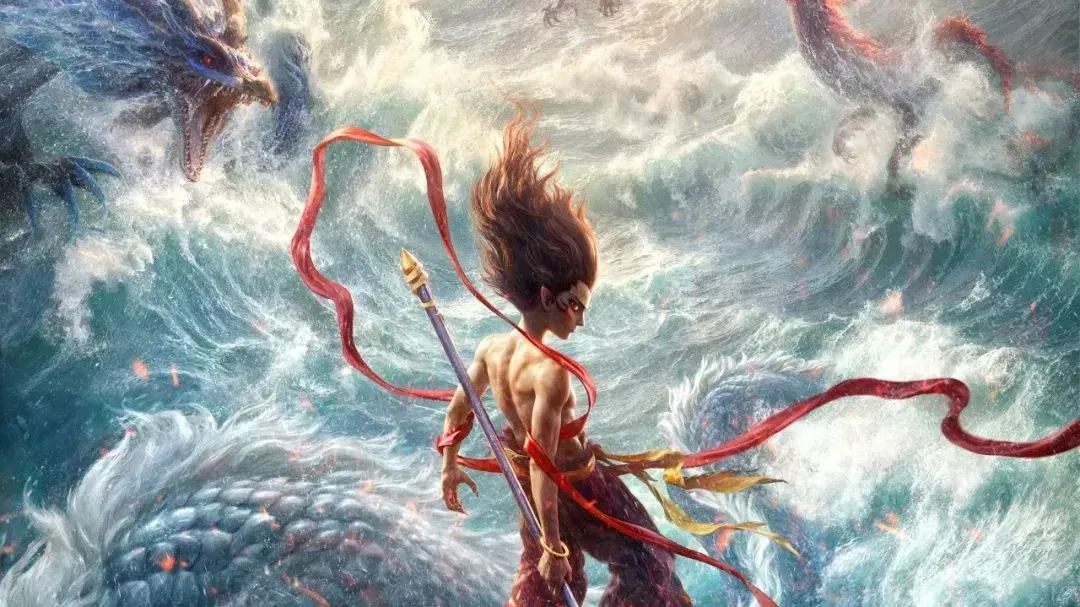A Fresh Look at “Nezha 2”
The Spring Festival holiday might be over, but the buzz around “Nezha: Reborn” continues to electrify audiences. This sequel has not only dominated the box office but also sparked conversations about its deeper themes.

Compared to its predecessor, “Nezha 2” showcases significant advancements in storytelling, character development, visual effects, and overall technical execution. It delves into timeless questions of destiny, family bonds, education, and societal norms, all wrapped in a vibrant mythological package.
Nezha: The Underdog Story
Breaking Free from Labels
The Power of Love and Trust
Nezha, with his hands in his pockets and a defiant glare, is the quintessential troublemaker. Branded as a demon incarnate and a bringer of misfortune, he’s the kid everyone loves to hate. Yet, beneath the surface lies a heart capable of transformation, nurtured by his parents’ unwavering love and trust.

Just as Master Taiyi subtly hints at Nezha’s rebirth through lotus roots, the film suggests that origins don’t define destiny, and labels don’t determine worth. Nezha’s parents never tried to suppress his “demonic” nature. Instead, they provided a secure environment through acceptance, trust, and constant support, allowing him to learn responsibility through mistakes and understand justice through conflict.
Simple acts like playing毽子, sharing hugs, and bedtime talks opened Nezha’s heart, revealing his desire for acceptance. This understanding allowed them to plant seeds of goodness with the “reincarnated spirit bead” lie, achieving remarkable results without strict discipline.
Every child yearns for understanding, recognition, and support. Their inner worlds are like complex codes waiting to be deciphered, and love and trust are the keys. Despite being a demon incarnate, Nezha’s transformation into a protector is a testament to the power of positive influence.
Director Jiaozi’s personal experience of relying on his parents for three years mirrors the film’s message about the transformative power of love and trust.
Ao Bing: The Burden of Expectations
Letting Go of the Past
Allowing Children to Forge Their Own Paths
Ao Bing, the dragon prince, is Nezha’s foil. He is polite, obedient, and kind – the “perfect child” every parent dreams of. The Dragon King loves Ao Bing deeply, even stealing the spirit bead and crafting the “Ten Thousand Dragon Armor” for him
However, this love comes with the heavy burden of saving the dragon clan. It’s not until the Dragon King says, “Parents’ experience may not always be right; you need to forge your own path,” that Ao Bing truly becomes a free-spirited young man like Nezha.
The Dragon King learns to let go, transforming from a taskmaster to a supporter. Children are not extensions of their parents. As psychologist Alfred Adler suggests, parents must learn to “watch their children’s backs as they walk away.” After all, wanting a child to succeed is one thing, but children have their own lives to live.
Shen XiaoBao: The Ordinary Achiever
The Power of Positive Role Models
“Nezha 2” blurs traditional character boundaries, showcasing complex personalities. For instance, Shen Gongbao is no longer a one-dimensional villain; he’s also a victim of prejudice. His younger brother, Shen XiaoBao, is a diligent and hardworking young man who may lack Nezha’s talent or Ao Bing’s resources but represents the majority of ordinary people.
His motivation comes from his brother, Shen Gongbao. This young man, who always works hard in the shadows, exemplifies the importance of role models. Role models, especially those close to us, provide tangible positive energy and inspire us. Li Jing understands this and thus maintains a positive image of Shen Gongbao in front of Shen XiaoBao.
As the saying goes, “Example is better than precept.” Educator Sukhomlinsky once said, “Every moment you see a child, you also see yourself.” Children mirror their parents’ character. However, in reality, many parents “chicken parent” their children while living in “lie-flat mode” themselves. Education should not be one-sided; it should be a joint effort. Parents’ actions resonate with their children.
These three distinct characters collectively deliver a profound message about education.
Nezha’s evolution demonstrates his well-rounded development. From defiantly saying, “Since you say I’m a monster, I’ll be the monster you see,” to shouting, “My fate is in my hands,” and finally, “I want to try and change this world,” the film’s theme gradually elevates with Nezha’s cries.
The film shifts from “becoming what the world wants” to “making the world what you want,” elevating the meaning of education.